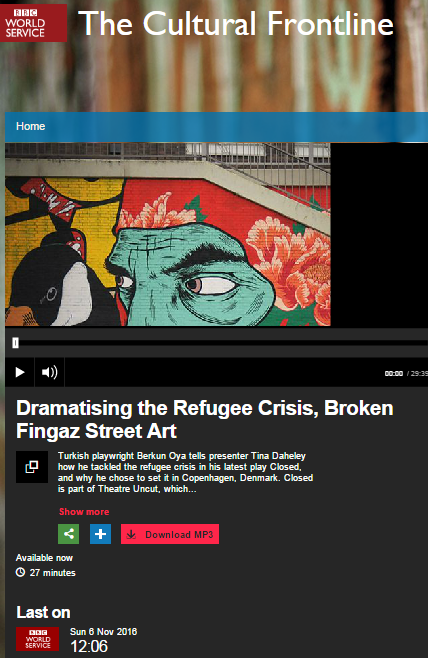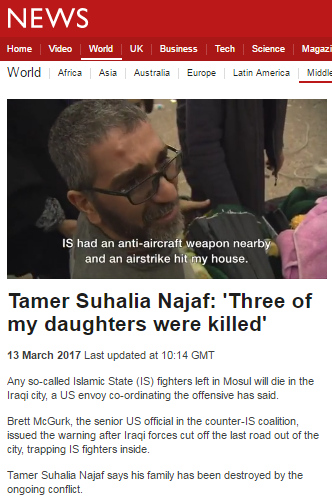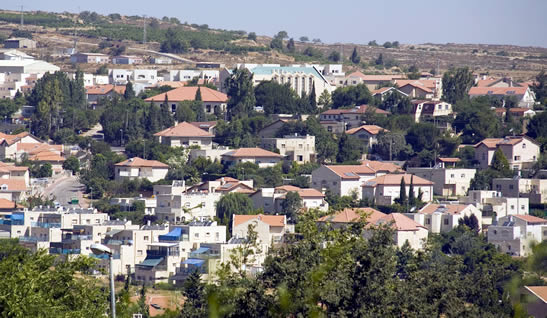The November 6th edition of the BBC World Service radio programme ‘The Cultural Frontline’ (“where arts and news collide”) included an item (from 07:30 here) described in its synopsis as follows:
“Reporter Sahar Zand meets a member of the Broken Fingaz street art collective from Israel. Against the colourful backdrop of his latest mural in Hackney, east London, they discuss the controversial group’s international presence and deep roots in their native Haifa, Israel.”
Seeing as some of Zand’s questions were clearly intended to prompt responses relating to Israel, it is interesting to take a look at the unchallenged impressions of that country received by audiences.
For example, listeners were informed that Israelis “don’t have much of a history”.
Zand: “How does your work reflect where you come from; your society?”
Unga: “The chaos and like the colours and the intensity. But at the same time we are very open to be influenced by other cultures – maybe because we don’t have much of a history then we are more open to search for something new.”
Audiences also heard that one “cannot avoid propaganda” in Israel.
Zand: “How do you think that Broken Fingaz murals are responding to what’s going on in Israel at the moment?”
Unga: “Anyone who’ve [sic] been to Israel know that it’s one of the most political places in the world and you cannot avoid propaganda. There are specific works that really talks about it and they are more political.”
Listeners were told that the anti-terrorist fence is “not normal” – but not why it had to be erected – when the artist described a mural in Haifa which shows:
“….Prime Minister Bibi and his wife in vacation clothes with the polo shirt and everything nice and they’re with a selfie stick posing next to the separation wall. It’s all about this normality and, like, trying to portray this like everything is normal, nothing really happening, but obviously it’s not normal – it’s not supposed to be like this…”
Audiences were inaccurately informed that Haifa is the only place in which Jews and Arabs live together.
Unga: “It is really a special place. In this crazy area called the Middle East we create our own community in Haifa the city that we live. There is this thing of Arabs and Jews living together which you don’t see anywhere else, not in this way.”
And listeners also learned that the Israeli media ‘glorifies death’.
Unga: “I can say about death that it’s always surprising for us that people in Israel can be shocked about drawing of skeletons while the whole place is just surrounded by death and they keep talking about death. That’s the only thing that they talk about in the news; is, like, glorifying it. But then when they see this they will suddenly get offended; like, how dare you, like.”
The BBC Trust states that:
“The BBC’s journalism for international audiences should share the same values as its journalism for UK audiences: accuracy, impartiality and independence. International audiences should value BBC news and current affairs for providing reliable and unbiased information of relevance, range and depth.”
Clearly this item intended for “international audiences” did not meet those standards.




